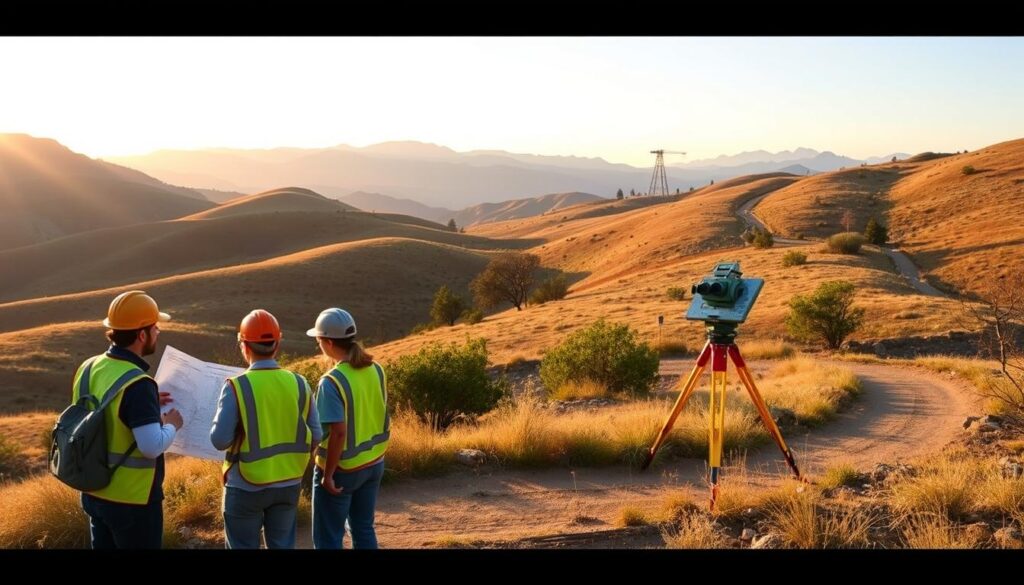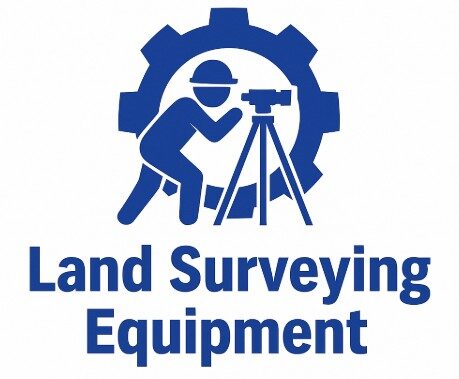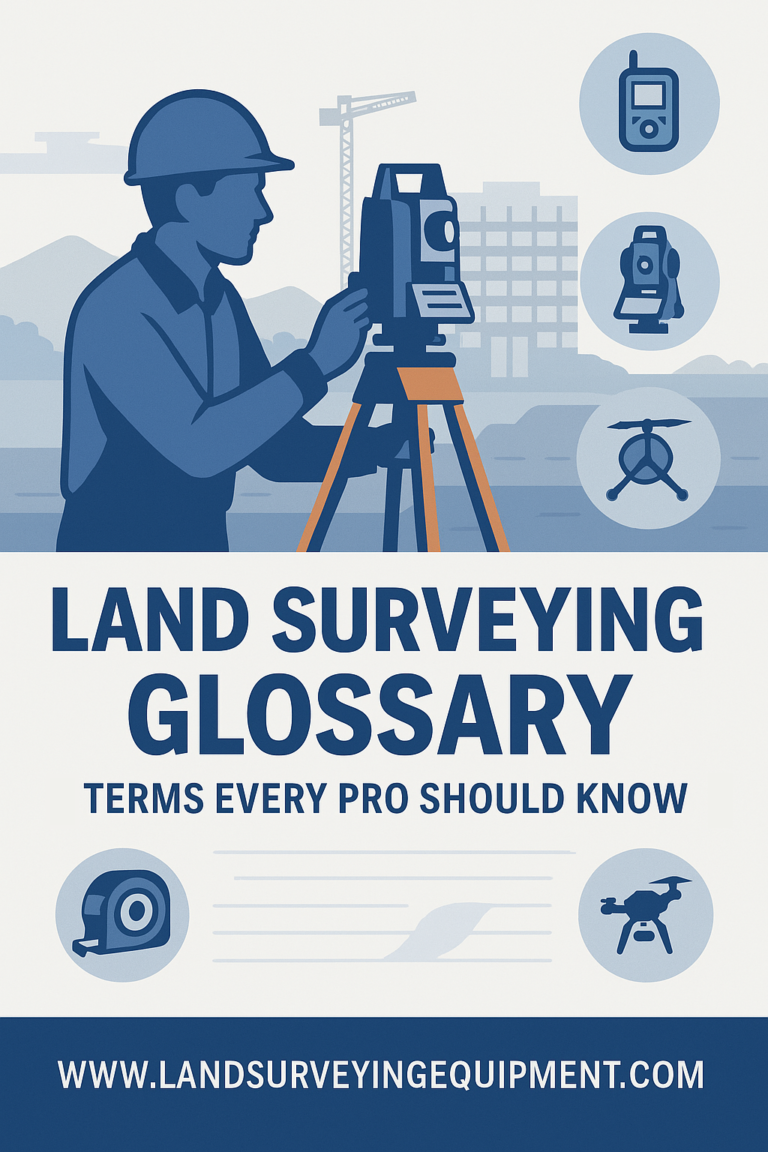Get Your Land Surveyor License: Education, Certification & More
Getting a land surveyor license is key to becoming a professional surveyor. You need to meet certain education and certification requirements. These vary from state to state.
In Kansas, the State Board of Technical Professions has updated the rules. Now, you can get a license without a degree if you have eight years of experience. This shows how important it is to know the different ways to get educated and certified.
To become a surveyor, you can choose from many paths. These include degree programs and non-degree training. You also need to pass a licensing exam to meet the surveyor qualifications.
Key Takeaways
- Understanding the education and certification requirements is crucial for becoming a licensed land surveyor.
- Different states have varying requirements for land surveyor licensure.
- A non-degree education pathway can be an alternative route to licensure, coupled with relevant experience.
- Aspiring surveyors must meet specific qualifications, including passing a licensing exam.
- The Kansas State Board of Technical Professions has revised the educational requirements for licensure.
Understanding the Land Surveying Profession
Land surveyors play a key role in construction and infrastructure projects. They measure and map the land’s shape. This data helps make important construction decisions.
What Land Surveyors Do
Land surveyors do many things. They find property lines, map terrain, and collect data for construction. They use special tools and software for accurate work.
Key responsibilities of land surveyors include:
- Conducting field surveys to gather data
- Analyzing data to determine property boundaries and topography
- Preparing detailed maps and reports for clients
The Importance of Professional Licensing
Land surveyors need professional licenses. This shows they have the right education, training, and experience. Each state has its own rules, but usually, you need to pass a test and meet certain requirements.
Licensing is important because it:
- Ensures competence and professionalism
- Protects the public by setting standards for practice
- Provides a framework for accountability
Career Outlook and Salary Expectations
The job outlook for land surveyors is good. This is because of the need for new infrastructure and buildings. Salaries can vary based on where you work, how long you’ve been doing it, and who you work for.
Key statistics for land surveyor careers include:
- Median salary ranges from $60,000 to over $100,000 depending on experience and location
- Job growth prospects are favorable due to infrastructure projects
- Opportunities for advancement with experience and additional certifications
Education for Land Surveyors How to Get License Requirements
To become a licensed land surveyor, you need to meet certain educational standards. These standards vary by state. The educational path is key to prepare for the job’s demands.
The Minimum Educational Standards for land surveyors include classroom and practical training. Most states ask for a Bachelor’s degree in fields like geomatics or surveying engineering. For example, Kansas requires at least 12 college hours of surveying courses for a license.
Minimum Educational Standards
Land surveyors need a solid base in math, geospatial tech, and law. They study algebra, geometry, and calculus. They also learn about surveying law and ethics.
Degree Options for Aspiring Surveyors
Aspiring land surveyors can choose from Associate and Bachelor’s degrees in surveying. Some schools offer certificates and continuing education. Accreditation is important when picking a program.
Accreditation Standards for Surveying Programs
Accreditation ensures programs meet quality standards. The Accreditation Board for Engineering and Technology (ABET) is a recognized accreditor. It’s crucial to choose an accredited program to meet licensure needs.
In summary, meeting educational requirements is a big step to becoming a licensed land surveyor. Knowing the standards, degree options, and accreditation helps make the right educational choice.
Educational Pathways to Becoming a Land Surveyor
To become a licensed land surveyor, you have several educational paths. You can pick from programs that fit your learning style and career dreams.
Associate Degree Programs
Associate degree programs in surveying or related fields are a good start. They usually take two years and cover basics like geospatial technology and measurement fundamentals. Colleges like Oregon Institute of Technology and Pennsylvania State University offer these programs.
Bachelor’s Degree Programs
Bachelor’s degree programs give a deeper education, needed for advanced roles and licenses. They last four years and include topics like geomatics, land surveying law, and advanced measurement techniques. Texas A&M University-Corpus Christi has accredited programs in surveying or related fields.
Certificate Programs and Continuing Education
Certificate programs and continuing education are key for specialization or keeping up with new trends. They are shorter and focus on specific areas like surveyor exam prep and new technologies in surveying. Online platforms like Coursera and Udemy have many relevant courses.
Online vs. In-Person Learning Options
Choosing between online and in-person learning depends on your needs. Online courses are flexible, while in-person classes offer hands-on learning and direct instructor interaction.
When picking your educational path, think about your learning style, career goals, and your state’s licensure requirements.
Core Coursework in Land Surveying Education
Future land surveyors need to learn a lot to get ready for their job. They study many subjects to understand both the theory and practice of land surveying.
Mathematics and Measurement Fundamentals
Math is key in land surveying, focusing on geometry, trigonometry, and statistics. These math skills help with distance and angle measurements. They are used to figure out property lines and layouts.
Geospatial Technology and GIS
Today’s land surveying uses geospatial technology and Geographic Information Systems (GIS). Students learn GIS software and other tools. They use these to analyze and understand spatial data, which is vital for making good decisions in land surveying.
Legal Aspects of Land Surveying
Land surveyors need to know the legal aspects of their job. This includes property laws, boundary disputes, and liability issues. Knowing this helps ensure surveys follow the law and helps advise clients.
Field Experience and Practical Training
Getting hands-on experience is crucial in land surveying education. Students do fieldwork and internships. This lets them use what they’ve learned in real situations. It’s how they develop the skills needed for a career in land surveying.
The main courses in land surveying education cover a lot. They include the theory, practical skills, and legal knowledge needed for a license. By learning these subjects well, future land surveyors can face the job’s challenges confidently.
Experience Requirements for Licensure
To become a land surveyor, you need a certain number of hours of experience. This experience must be under the watch of a licensed surveyor.
Supervised Work Experience Guidelines
States have different rules for supervised work experience. It depends on your education and the state’s rules. For example, some states need four years of experience for those with a degree. Others might ask for six years without a degree.
It’s crucial to understand the specific guidelines for supervised work experience in your state. You need to know what tasks count, how much supervision you need, and how to record your hours.
Internship Opportunities
Internships give you real-world experience and a chance to meet people in the field. Many firms and government agencies offer internships to students and new graduates. They help you get practical experience, build your network, and might even lead to a job.
When looking for internships, find ones that offer a variety of experiences. Look for fieldwork, data analysis, and working with clients. This variety will help you when you apply for your license.
Documenting Your Professional Experience
Keeping a detailed record of your experience is key when applying for your license. You should log your work hours, projects, and tasks done under a licensed surveyor.
Here are some tips for documenting your experience: Keep a log daily or weekly. Get regular checks from your supervisor. Organize your records to match the state’s requirements.
Tips for Finding Qualifying Experience
Here are some ways to find the experience you need:
- Look for jobs with surveying firms that hire interns or new surveyors.
- Network at industry events and through local surveying groups.
- Use online job sites and LinkedIn to find opportunities.
- Reach out to potential employers to show your interest in gaining experience.
By knowing what experience you need and actively looking for it, you can set yourself up for success in getting your license.
State-by-State Licensing Requirements
Understanding the rules for becoming a land surveyor varies by state. The profession is overseen by each state, leading to both shared and unique requirements. This means the path to becoming a licensed land surveyor can differ greatly from one place to another.
Common Requirements Across States
Many states share some basic requirements. For example, passing the Fundamentals of Surveying (FS) exam is common. States also often require a degree in surveying or a related field and a certain amount of work experience.
Education and Experience: Most states need a degree from an approved program and supervised experience. This experience, which can last from four to eight years, is key for gaining the skills needed to pass exams and do the job well.
Notable Variations in State Requirements
Even with shared requirements, states have their own rules. For instance, Tennessee lets candidates with a high school diploma and 10 years of experience take the exam. Other states might require a bachelor’s degree or more.
State-specific regulations also affect what tasks surveyors can do. Knowing these differences is crucial for those who want to work in different states.
Reciprocity and Comity Between States
Agreements between states can make it easier for surveyors to work in different places. Some states have deals that let licensed surveyors from one state get a license in another with fewer extra steps. But these agreements don’t cover all states, and rules on using credentials from another state vary too.
Resources for Researching Your State’s Requirements
Future land surveyors should check with their state’s licensing board for the latest on requirements. The National Society of Professional Surveyors (NSPS) also offers help and information on state rules.
| State | Minimum Education Requirement | Experience Requirement | Reciprocity |
|---|---|---|---|
| California | Bachelor’s Degree | 6 years | Yes |
| Tennessee | High School Diploma | 10 years | No |
| New York | Associate’s Degree | 4 years | Yes |
| Florida | Bachelor’s Degree | 6 years | Yes |

Professional Examinations for Land Surveyors
To become a licensed land surveyor, one must pass a series of professional examinations. These exams test their knowledge and skills. They ensure surveyors can perform their duties accurately and safely.
The Fundamentals of Surveying (FS) exam is the first step. It’s given by the National Council of Examiners for Engineering and Surveying (NCEES). This exam checks a candidate’s grasp of surveying’s basic principles.
Fundamentals of Surveying (FS) Exam
The FS exam covers a wide range of topics. These include measurement, calculations, and legal aspects of land surveying. Candidates can prepare by joining study groups, taking online courses, and practicing with exams.
Principles and Practice of Surveying (PS) Exam
The Principles and Practice of Surveying (PS) exam is the next level. It tests a candidate’s ability to solve real-world problems using surveying principles. NCEES administers this exam, which is a key step towards a professional license.
State-Specific Exams
Many states also require land surveyors to pass state-specific exams. These exams check a candidate’s knowledge of local laws and practices. It’s important for aspiring surveyors to know the specific requirements of their state.
Exam Preparation Strategies and Resources
Effective exam preparation is key to success. Candidates can use study guides, online courses, and practice exams. Joining study groups and getting advice from experienced professionals can also help.
By understanding the requirements and preparing well, aspiring land surveyors can become licensed professionals. The surveying certification process is tough but important. It ensures surveyors are skilled and accurate in their work.
Professional licensing for land surveyors is vital for the profession’s integrity. Passing these exams shows a surveyor’s commitment to professional licensing for land surveyors. It also shows they can provide quality services to the public.
Top Schools and Programs for Land Surveying
Starting a career in land surveying means finding the right program. Many schools offer courses in this field. It’s key to pick ones with accredited programs and solid curricula.
Universities with Accredited Surveying Programs
Many universities have top-notch land surveying programs. These programs are approved by key accrediting bodies. This ensures they meet the high standards for surveying education.
University of Florida (Geomatics Program)
The University of Florida’s Geomatics Program is known for its detailed curriculum. It covers geodesy, GIS, and land surveying. The program balances theory and practical skills well.
Oregon Institute of Technology (Surveying Program)
Oregon Institute of Technology’s Surveying Program gives students hands-on experience. They use the latest equipment and technology. The program prepares students for the FS exam and other certifications.
New Mexico State University (Surveying Engineering Program)
The Surveying Engineering Program at New Mexico State University is rigorous. It combines academic courses with research. This provides a comprehensive education in land surveying and geomatics engineering.
Community Colleges with Strong Surveying Curricula
Community colleges also offer great land surveying programs. They are a good choice for those looking for affordable or flexible options.
Dunwoody College of Technology (Minnesota)
Dunwoody College of Technology in Minnesota is known for its surveying program. It focuses on surveying technology and GIS. The program emphasizes practical skills for the workforce.
Central New Mexico Community College
Central New Mexico Community College has an Associate of Applied Science degree in Surveying Technology. It covers surveying principles, GIS, and mapping.
Renton Technical College (Washington)
Renton Technical College in Washington offers a Surveying Technician program. It includes courses in surveying, mapping, and geospatial analysis. The program prepares students for entry-level jobs.
Online Education Options
Online education is flexible for those who need it. Sites like Coursera and Udemy have courses in land surveying and geomatics. These are great for ongoing education and professional growth.

Application Process for Land Surveyor Licensure
Getting a land surveyor license is a detailed process. It involves many steps and checks. Aspiring surveyors need to be ready to tackle this complex journey.
Required Documentation and Forms
First, you must gather and submit the right documents and forms. This includes your education records, work experience proof, and any professional certifications. Make sure all your documents are correct and complete to avoid delays.
For example, a surveyor in California might need different documents than one in New York. This shows how important it is to know the state-specific requirements.
Application Fees and Timelines
It’s also crucial to know the application fees and how long it takes. Fees can change by state, and the review time can be long. Plan ahead to meet the deadlines.
“The licensure process is not just about passing an exam; it’s also about demonstrating your ability to practice surveying ethically and competently,” says Jane Doe, a licensed land surveyor.
Background Checks and References
Many states ask for background checks and professional references. Choose references who know your work well and can speak to your skills.
Common Application Mistakes to Avoid
Staying clear of common mistakes can make the application smoother. These include missing documents, late submissions, and not paying enough fees. A table below lists these mistakes and their effects:
| Mistake | Consequence |
|---|---|
| Incomplete Documentation | Delayed Processing |
| Late Submissions | Application Rejection |
| Insufficient Fees | Application Hold |
By knowing the application steps and avoiding common errors, aspiring land surveyors can get their license. This is a big step towards their career goals.
Conclusion: Your Path to Becoming a Licensed Land Surveyor
To become a licensed land surveyor, you need to follow a detailed path. This includes getting a degree, getting certified, and gaining practical experience. You’ll have to go through tough academic programs, supervised work, and pass state exams.
First, you should get the right surveyor qualifications by studying in accredited programs. These programs should cover math, geospatial tech, and the legal side of surveying.
After that, you’ll get your land surveyor license after finishing your education, gaining experience, and passing exams like the Fundamentals of Surveying (FS) and Principles and Practice of Surveying (PS).
To keep your license, you must keep learning through continuing education. This keeps you up-to-date with new tech and methods. Knowing how to get surveying certification and following state rules will help you reach your career dreams.






